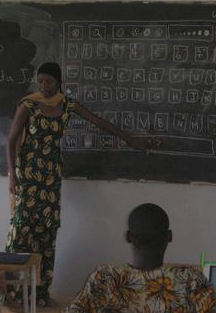More Tech Salons About youth
-
At the recent Technology Salon London, we debated How to Safeguard Our Constituents in Digital Development? with discussants (under the Chatham House rule) from a wide range of development organizations including DFID, DAI, Accenture Development Partnerships, Save the Children, Plan International, Chemonics, Comic Relief, World Wide Web Foundation, Cherie Blair Foundation, Child Hope UK, Christian…
-
Digital technology is transforming economies and the world of work in profound ways. Traditional jobs are being transformed while new forms of work are being created. Siven Maslamoney, Manager, Harambee Youth Employment Accelerator, and Sean Blagsvedt, Former CEO of Babajob.com in India, led the group of digital professionals, M&E officials and youth facing programme implementers…
-
We looked at the role of mobiles in youth financial inclusion at our March 11th Technology Salon in New York City. Tim Nourse, Making Cents; Peter Goldstein, Intermedia; and Jamie Zimmerman, Bankable Frontier Associates; joined as lead discussants. Though mobile financial services are seen by many as inevitable, some Salon participants felt that, like in…
-
Migration is central to the current political debate as well as to the development discussion, especially in conversations about the “post 2015” agenda, the ‘youth bulge’, and youth employment. Prevention work is not likely to end migration, regardless of the organizations and governments working to improve the well-being of children and youth in their home…
-
At the November 8th Technology Salon in New York City, we looked at the role of ICTs in communication for development (C4D) initiatives with marginalized adolescent girls. Lead discussants Kerida McDonald and Katarzyna Pawelczyk discussed recent UNICEF reports related to the topic, and John Zoltner spoke about FHI360’s C4D work in practice. To begin, it…
-
In both the developing and developed world there has been increasing debate about the role of teachers in the 21st century, particularly in the context of widening access to internet enabled smartphones, laptops, tablets and the wealth of online learning materials and approaches that these new devices support.
-
I am Russell Southwood of Smart Monkey TV and in July, I was at the “How is ICT Impacting Education in Rwanda?” Tech Salon DC on the experience of using technology in education in Rwanda. Several of those who spoke emphasized the importance and centrality of the teacher in the education system.
-
Games have been a point of contention in the education technology field for well over a decade, but thanks to the raw determination of Henry Jenkins, James Gee, Katie Salen and other game enthusiasts, the deconstruction of the games paradox has made space for games with social impact.
-
At the global level, a very small percentage of development funding goes to urban spaces, yet hard-hitting issues impact many of the urban poor: lack of tenure, lack of legality of land, informal settlements, lack of birth registration and civil registration in general, waste disposal, clean water, politicizing of local authorities and more. Can new…
-
In the developing world, girls need new skills and capacities for the 21st Century. They need to have the ability to be flexible, adaptive, and innovative to grow into positions of influence in their communities and countries.
Yet – as we learned in the Gender Equality in ICT Education discussion – just getting girls to secondary school is a challenge, and once there, girls often shun ICT’s unless they have strong mentors and female role models.
Please join us Thursday, January 28th, as Linda Raftree, Social Media and New Technology Advisor for Plan International‘s West Africa Regional Office, leads us in a discussion of three pertinent questions:
- How can the technology and international development communities support the development of girls?
- What role does ICT play in facilitating girls’ growth?
- And where are the concrete examples that prove ICT is a net positive for female progress?
We’ll also try to identify case studies, partners, and further research around girls development and ICT for inclusion in Plan’s 2010 Girls and ICT Report, now underway.










